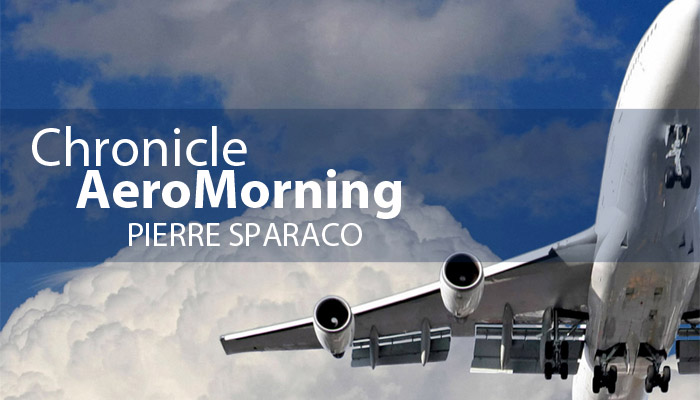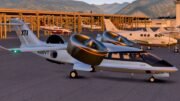There is no point of making a knowing look and to act as if everything was understood… Convened in Madrid for a conclave, the thinking reeds of the European Commission – the specialists of transports – put forward to us all at once an incomprehensible White Paper with environmental vocation and ideas for the future which are clearly speaking unclassifiable.
This is how Onera, France’s aerospace research agency, and a dozen among its partners have presented a progress report on the PPlane, Personal Plane, a kind of remotely controlled private plane, presented as a personal air transport means. This is, according to Onera, one of the most “prospective” projects introduced during these discussions. Yet, it is a complete brain teaser, except if it is understood that it would be aimed to eliminate despicable terrestrial traffic jams on the roads and to send them into the sky. Technically speaking and almost science fiction, the PPlane is visibly a wonderful topic for thought for engineers indisposed to be locked up in a common R&D department of the Airbus and Boeing kinds. It remains to be seen, apart from all other considerations, if environment protection would gain anything with it, all the more since the European Commission requires competitive transports.
Casting a wide net, the White Paper titled “For a Unified European Area for Transports”. Sub-title: towards a competitive and resource-saving transports system. This document paved with good intentions and multiple platitudes, written in volapük, is just repeating what we’ve already known for a long time, but saying it worse.
The most important ideas of the document are not so important. We “learn” particularly that mobility is essential, that European transports – all kinds of transport modes – are at a crossroads, that oil production will be scarcer and scarcer. And it adds that since the last oil crisis which occurred nearly 40 years ago, the “system” has not changed fundamentally. Hence a threatening message: “if we are late on acting and if we do not introduce new technologies, we run the risk to condemn the European transport industry to an irreversible decline”. The fact is therefore to prepare the sustainable mobility, right away.
This curious White Paper, incredibly technocratic, is full of wishful thinking. Certainly, it was not useless to remind the good intentions of the European Commission. But a clearer and spare wording, focused on the essential, would have certainly gotten better chances without doubt to draw the attention of the opinion. Example: it is certainly good to hammer home that if we do nothing, in 2050, CO2 emissions will exceed by one third the 1990’s level. Hence this Roadmap based on well-known and worrying findings: our transports rely on oil production up to 96%. In the same time, it is advisable to assume that reducing mobility is not an option, with or without the PPlane which is here away from the point and purely anecdotic.
Compared to the remarks within ICAO, IATA, on the occasion of exchanges of views of aircraft manufacturers and engine manufacturers or within the premises where is regularly evoked the extraordinary slow progress of the unification of the aerospace area, the Commission is adding nothing new unless that it is trying to exert all its political weight (but is it real?) on an omnipresent societal debate. However, the advantage this time is to be multimodal: therefore, the railway network should be better integrated and should be the recipient of road traffic excess; the same with river traffic.
So goes the Commission, so goes Europe, walking along at a leisurely pace on ways paved with good intentions, formulating pleasant roadmaps witnessing the huge good will of Eurocrats. Shortly, nothing new to report.
Pierre Sparaco – AeroMorning
(Translated by Pascale Defarge)
Sustainable mobility – The European Commission has a dream: “competitive” transports.








Be the first to comment on "Sustainable mobility – The European Commission has a dream: “competitive” transports."